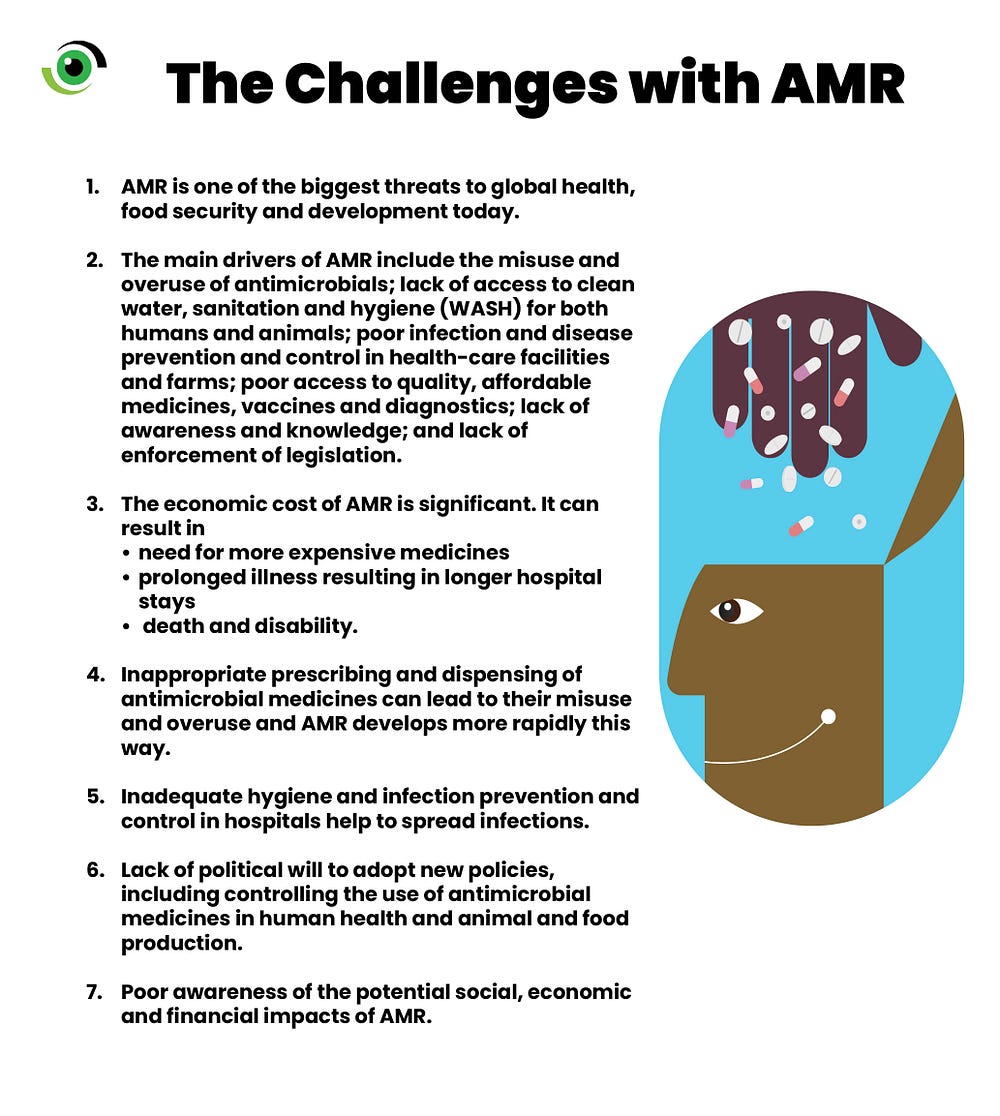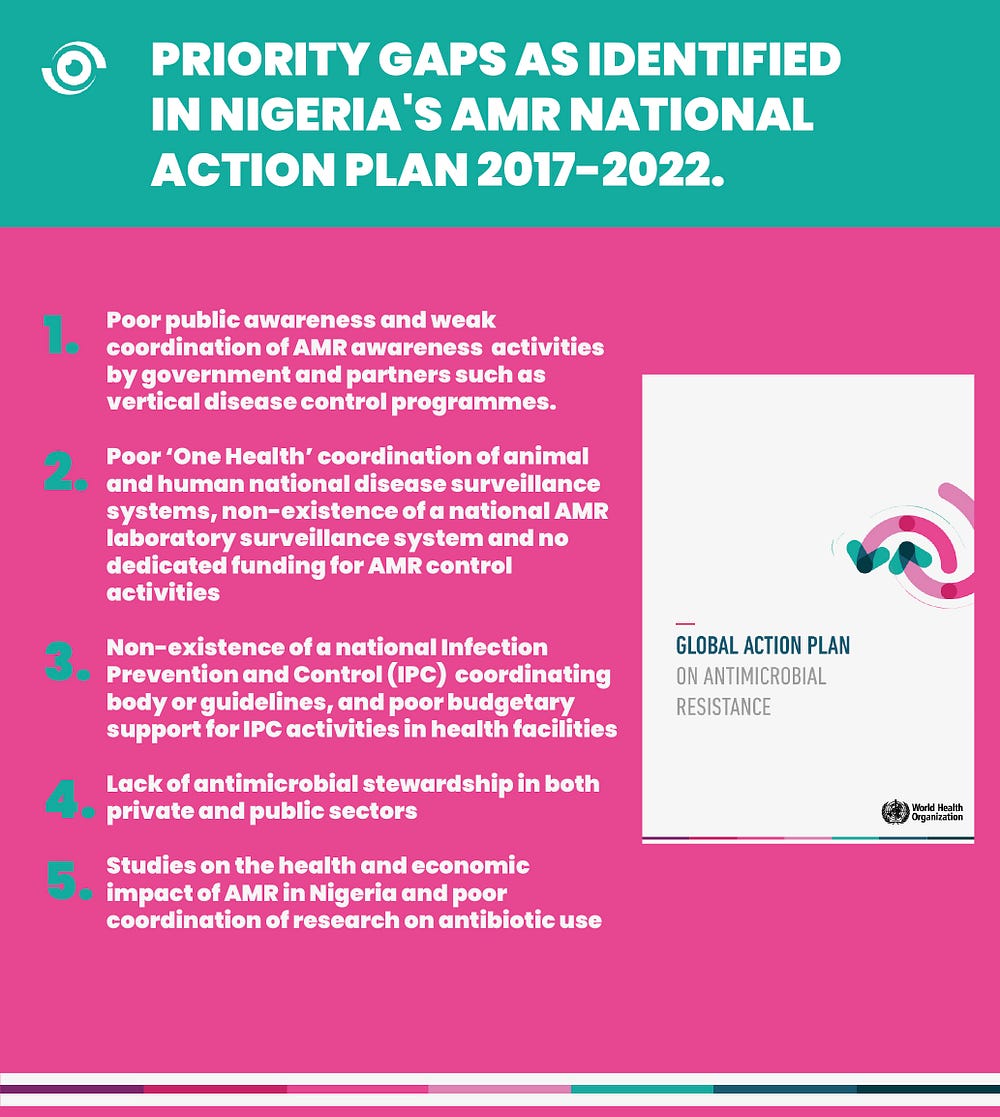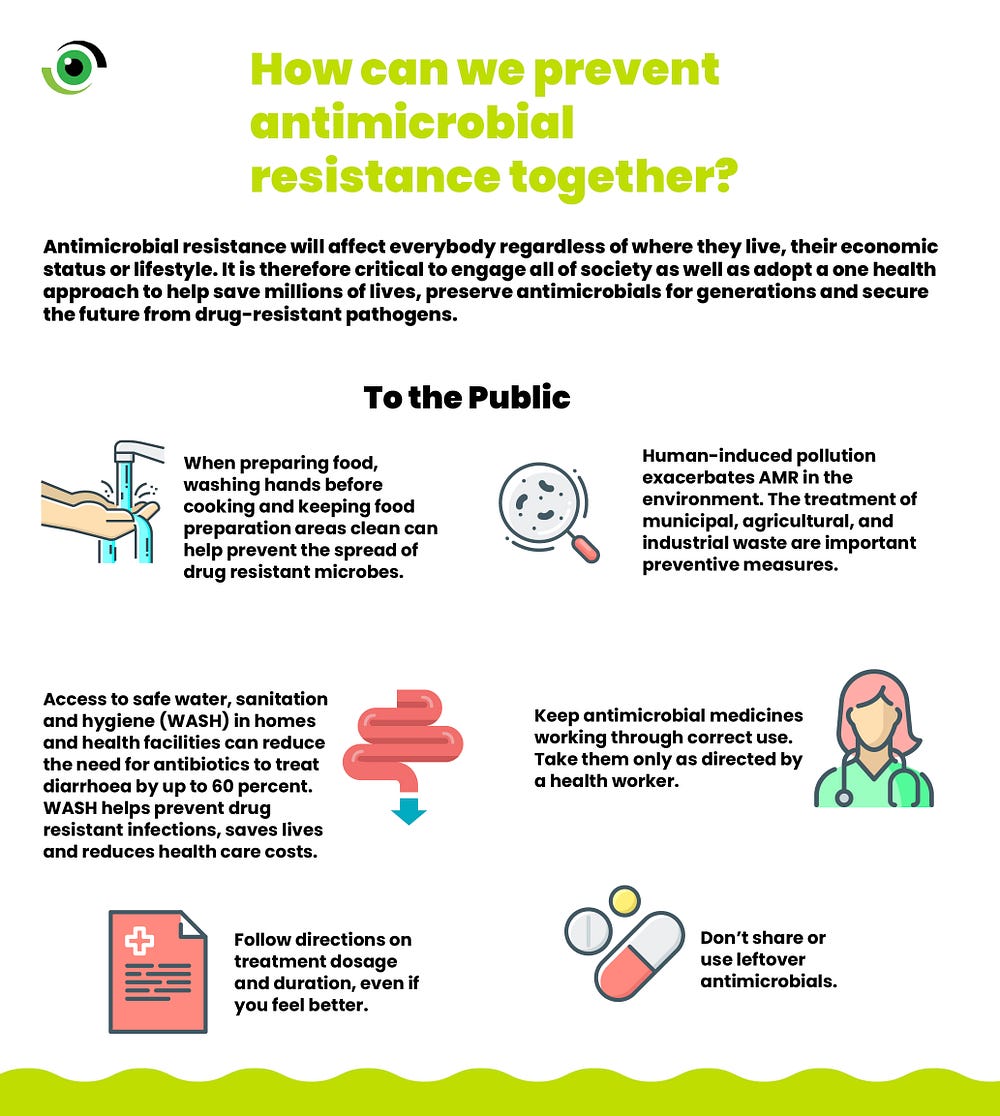Antimicrobial Resistance (AMR) is still a global health issue. In 2019, the United Nations Ad hoc Interagency Coordination Group on AMR warned that drug-resistant diseases could cause 10 million deaths each year by 2050, damage the economy and force up to 24 million people into extreme poverty by 2030, if no action is taken.
Results of the first comprehensive study of the global burden of Anti-Microbial Resistance published in January 2022 revealed that an estimated 4.95 million deaths were associated with drug-resistant infections globally, with 1.27 million of these deaths directly attributable to drug resistance. The highest death rates occurred in sub-Saharan Africa with 255,000 deaths recorded as attributable to resistant bacterial infections, second only to Asia. In Western sub-Saharan Africa, 27 of every 100,000 persons died from hard-to-treat infections compared to 16 deaths per 100,000 persons globally.
This year’s World Antimicrobial Resistance Week (WAAW) theme calls for everyone to prevent antimicrobial resistance together. This emphasises the need to adopt the One Health approach, bringing together multiple sectors and stakeholders engaged in human, animal and plant health, and the environment to work together in designing and implementing programmes, policies, legislation and research to attain better public health outcomes.








